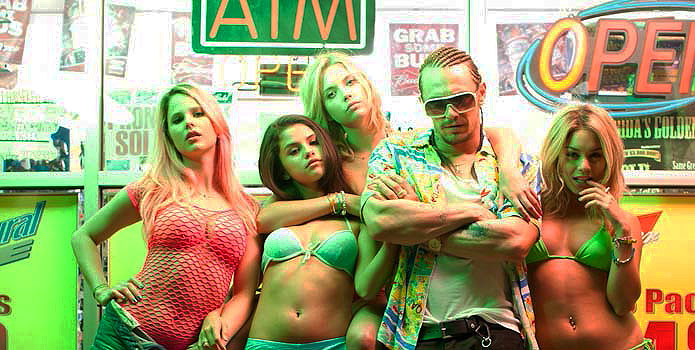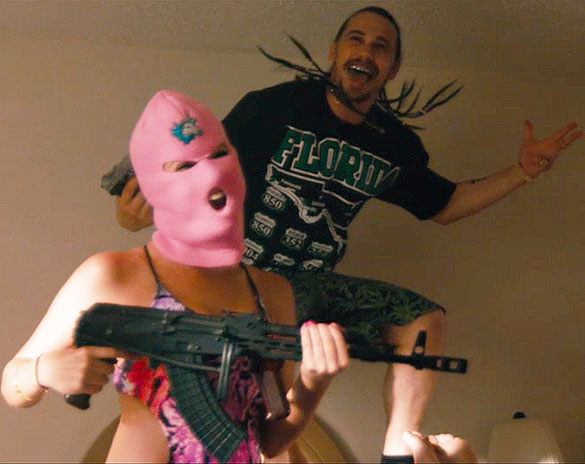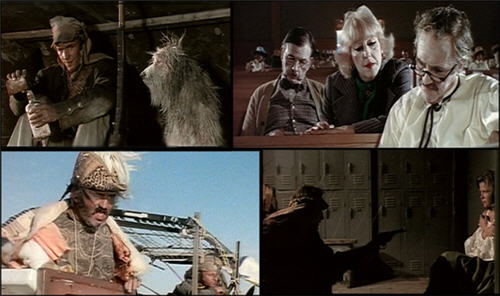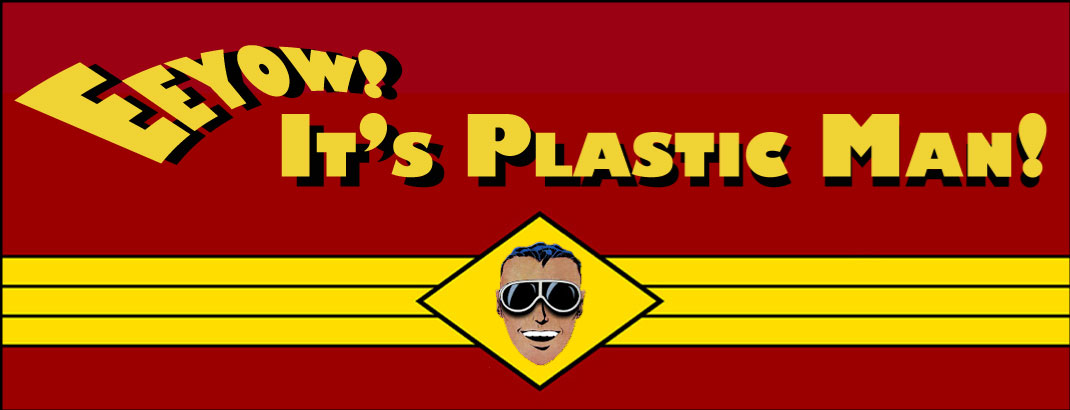So I saw Man of Steel and I have some thoughts about it
Posted: June 20th, 2013 | Author: Max Romero | Filed under: Uncategorized | Tags: Man of Steel, movie review, Superman | No Comments »Let’s get the main thing out of the way right now, even though it might color your reaction to the rest of this post: I liked Man of Steel. I actually liked it a lot.
Now let’s talk about why.
Minor spoilers follow.
I’m not going to get into an in-depth analysis of the movie (that’s been done, extensively and thoughtfully, by plenty of others already), but I will say I was almost dreading what I was going to see. In spite of my best efforts, I had read the concerns and complaints of reviewers and fellow nerds, and nearly all of it put me on high alert. And yes, there are things about Man of Steel that bother me — it’s not a perfect movie. But as I said on Twitter, those instances were like biting into a couple of rancid peanuts that have found their way into a sundae. Surprising and a little gross, but nothing that ruined my enjoyment on the whole. It’s still a hell of a sundae.
Hey, nobody said every simile was going to be gold.
Anyway, something happened while I sat in the theater. Even as I prepared to wince at everything that worried me to begin with — the somber tone, Clark on a crab boat, Russell Crowe as Jor-El and Kevin Costner as a jerky Jonathan Kent — I found myself, well … buying it. For the most part, everything was fitting and made sense. Sure, a lot was different, but even if aspects of the story weren’t “canon” (ugh) it stayed true to the core aspects of these characters and often echoed past storylines from the Superman mythos. (It’s worth noting, Superman celebrates his 75th anniversary this year and this is hardly the first time he’s gone through some significant tweaking.)
Before I start going hardcore on this, let’s go to the lazy writer’s friend – the bullet list! Here are some things I liked about the movie (note I’ve only seen it once, and that was a couple of days ago — I’m not going to remember everything so feel free to add your points in the comments):
• Krypton: I appreciated the nods to the crystal palace versions used in previous films, but I liked it more that Man of Steel‘s Krypton felt like a high-tech planet where Jor-El would still ride a dragonfly-lizard thing. When this actually happened my wife turned to me as if questioning such an egregious level of bullshit, and all I could do was grin at her. This was pure-grade, Silver Age lunacy and I loved it. I thought the liquid-metal technology was kind of neat, too.
• Henry Cavill as Clark/Superman/Kal-El: When I first saw stills of Cavill in costume, I hated it. Hated the suit, hated the plastic look of his hair and face, hated the lack of any “Superman-ness” in spite of all the trappings. Well, I was wrong. Cavill is a convincing Superman and acquits himself well as Angsty Clark. Yes, this Clark is exceptionally emo, but the reasons for it are solid and it works, thanks in large part to the actor’s work. And when he does experience joy — even if briefly — it bursts out of Cavill in a way that makes me wish the movie had more of those moments. We won’t know how well he’ll pull off the “mild-mannered reporter” version of Clark until we get a sequel, but there’s reason to hope.
• Amy Adams as Lois, everybody else: Casting is pretty solid; Adam’s Lois is strong and pro-active, Diane Lane’s Martha Kent is pragmatic but nuturing, and Laurence Fishburne’s Perry White … eh, it’s OK, I guess. Jackie Cooper remains my personal gold standard, but I was still glad to see a Perry who had a chance to be a heroic, self-sacrificing bad-ass (actually one of my favorite scenes in the film). And the dads — Russell Crowe had an entertaining take on Jor-El, who is a strategist as much as a scientist, and Kevin Costner was surprisingly effective as Jonathan. Honestly, and this might be heresy, this might be my favorite version of the character. I know, I can hardly believe it myself.
• The effects: Particularly, the speed. When Superman takes off and starts breaking multiple sound barriers, you can almost feel the rattling booms as everything whistles by in a blur. And of course he’d use his speed in a fight, which the movie does a good job of getting across while still giving viewers a chance to actually see what’s happening. The CGI is smooth and mostly unnoticeable, and the sheer scale of things is amazingly well-done. I think this is the first time Superman’s raw power has been depicted in a way that matches our imaginations.
• The nerdy: Kelex! “Guardian!” Lexcorp! Steve Lombard!!
(But no Jimmy Olsen?!)
As I said, there’s a lot to like about Man of Steel. But it is a Zack Snyder film, and if you’ve had problems with his past movies you’ll likely have the same problems with this one, too. Characterization is weaker than it should be; Lois Lane, for example, gets a throwaway line about being a Pulitzer Prize winning journalist, but beyond that it’s as if the filmmakers were relying on the audience already having an idea of who Lois is and filling in the blanks themselves. If you’re going to reimagine an iconic character’s entire universe, you can’t cut corners like that with the supporting cast — it’s a cheat.
The movie also tends to drag whenever Snyder needs an exposition dump, though to be fair the movie doesn’t feel like its nearly two-and-a-half hour run-time. And there is a lot of destructive spectacle, with very little real-world consequence.
Which brings us to the Krytonite elephant in the room.
Major spoilers follow.
• The Battles of Smallville and Metropolis: A lot has been made about these knock-down, drag-out set-pieces of nonstop action that essentially levels Smallville and what looks like at least a three-mile-square section of downtown Metropolis. And with good reason. The fights between Superman and the would-be conquering Kryptonians are incredible, and exactly what you would expect from a throw-down between super-powered beings. The problem is what doesn’t happen. Superman isn’t someone who just saves people (we’ll leave the Jesus imagery for another discussion), he’s someone who protects people. There is a subtle difference, and it boils down to Superman being the kind of person who would try to prevent people from being hurt in dangerous situations, not just rescuing them after the fact. And this doesn’t happen in Man of Steel.
The first fight with the Kryptonian rebels begins on the Kent farm, but soon makes its way to Smallville’s main street, which of course is lined with stores filled with people. Superman tells some passers-by to “get inside,” but that’s about it as far as taking care of the populace. Soon Superman, the Kryptonians and the U.S. Army are blowing the living crap out of the town, knocking down buildings, blowing up gas stations and otherwise flattening the place with more destructive power that a Kansas twister.
Later, after destroying a World Builder on the other side of the planet while a second one literally crushes a huge section of Metropolis, Superman speeds into the city to survey the devastation and have a last battle with Zod. (A lot has been made of Superman choosing to tackle the machine located in an unpopulated area instead of the densely packed City of Tomorrow, but this is missing some key dialogue: When working out their plan, it’s discussed that the Metropolis World Builder — manned by the Kryptonians — is linked to and powered by the first. The first has to be destroyed before the second can even be attacked. That’s a job for Superman.)
Soon enough, Zod attacks and the fight is on. And while it begins in the already destroyed section of Metropolis — which must cover miles and represent millions of casualties — it quickly moves on to the still-standing, not-at-all-evacuated rest of the city. And Superman does nothing to stop it.
He doesn’t try to keep it to the already crushed part of Metropolis. He doesn’t move it out of the city. He never tries to save anyone or prevent the shrapnel and collateral damage that no doubt was raining down on people. In fact, at one point Superman drives Zod’s face along the side of building, shattering glass and concrete, and both combatants punch each other through building after building. People are often seen running for cover, even as explosions rock the damaged skyscrapers they unlucky enough to be in. At this point Superman is as much a danger to the citizens of Metropolis as Zod. But of course, if the fight moved out of the city, we wouldn’t be able to get to the bitterest peanut of all.
• The Killing of Zod: The fight between Superman and Zod reaches its climax in what looks like Metropolis’ version of Grand Central Station, which of course is filled with people. Superman has Zod in a headlock, but Zod has figured out how to use his heat-vision and is slowly burning his gaze toward a group of cornered civilians. Superman tells Zod to give up, but Zod has just finished explaining how — at a genetic level — he will not, cannot, quit. Superman begs, “Zod! Stop!” and Zod answers, “Never.”
And then Superman snaps Zod’s neck.
OK. OK. From a storytelling point of view, I understand why Snyder and co-writer David Goyer made this choice. Superman famously has a no-kill policy, something he never violates. But other than being an inherently good guy, it’s never really explained why. Why would Superman feel so strongly against killing, especially since it would be so easy for him? Killing someone in his very first time out as a superhero (an act he obviously and instantly regrets), not to mention someone who represents the last link to a heritage and culture and identity he’s just been made aware even exists, would certainly be enough to make the thought of killing again impossible.
Except it’s bullshit.
First of all, the movie never explains how killing Zod might be the impetus for Superman’s vow never to kill (again). The audience is never even given a clue that this might be the case; Zod is dead and everyone just kind of moves on without reflection. It’s another cheat. Really, it’s just lazy storytelling.
And look, I’ve never had to kill someone to know I don’t want to kill anyone. I know it’s wrong. Are you telling me Superman wouldn’t have figured this out? I’ve said it before, but I’ll say it again: The main reason Superman “works,” what makes him a hero among heroes, is that he’s not only inspirational but also aspirational. Superman is the best not because we believe in him, but because he believes in us. We can be better. We should be better. That’s something Superman himself continually aspires to.
Let me tell you a story. When Superman: The Movie came out I was eight years old and seeing that film in a theater impacted the way I watch movies to this day. But it didn’t really have anything to do with the movie itself. What I remember most happened when the helicopter carrying Lois is falling from the top of the Daily Planet building, and Clark starts running for a place to change, pulling his shirt open to reveal the bright S-shield underneath.
And the audience spontaneously cheered. They kept cheering, whistling and shouting, “Yeah! Go Superman!” when he stepped out in full costume for the first time seconds later, not quieting down until both Lois and the chopper were safely in hand. And that’s when I saw the power of cinema to move audiences, to inspire the full range of emotion and transport people to a place where they could experience the joy of believing a man could fly.
That, at its core, is what’s missing from Man of Steel. In spite of mighty swings, there is little joy in Smallville.
Does that make it a bad movie? Not at all. As I said before, I liked it. I like it a lot and I actually like it more as I let it sink in. Are there parts I wish had been done differently? Sure. The problems I have with the movie could have been solved so easily; Superman could have moved the fight to a corn field outside of Smallville, he could’ve been shown trying to get at least some people to safety in Metropolis. Killing Zod, though it makes sense in terms of storytelling, could have been avoided.
But I also realize that this is just another interpretation of a 75-year-old character, one that has survived many, many reimaginings in that time. And this isn’t even the worst one. Far from it. Superman will be fine. Hopefully the sequel (Sequels? Dare I hope?) will move in a direction toward a more familiar Man of Steel without ceding any of the new territory its already claimed. As it is, he’s practically there already.
It’s not a bird. It’s not a plane. It’s still Superman.






